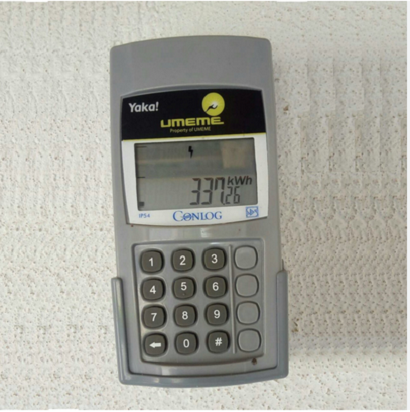The International Monetary Fund (IMF) has reached a deal when approved would see the international money lender give Uganda a loan worth US$1Bn equivalent to Shs3.544Trn.
The development was announced by Amine Mati who led the IMF team following virtual missions to Uganda from February 2-March 5 and from May 25-May 28, 2021 to discuss a 36-month program under the Extended Credit Facility.
IMF defended the loan to Uganda noting that Uganda’s economy has been hit hard by the COVID-19 pandemic that eroded people’s livelihoods which has seen poverty increase, thus reversing decade-long gains in wealth creation and inclusion despite the support measures introduced by the authorities.
The Fund added that although Government has received emergency financial assistance from the IMF and the World Bank to help close financing gaps and supported mitigation measures, there is need for Government to seek for external financing over the next few years in order to stablise the economy.
Amine Mati called on Government to strengthen governance and budget transparency, noting that these would be critical at fostering public sector efficiency while preparing the ground for sound management of oil revenues.
“Managing public investment appropriately, reducing domestic arrears, and strengthening cash management are all critical priorities for improving the business climate and attracting private investment. The authorities’ commitment to strengthen anti-corruption efforts is welcomed and encouraged,” he said.
IMF is said to have met with the former Minister of Finance, Matia Kasaija, acting Permanent Secretary and Secretary to the Treasury, Patrick Ocailap; Governor of the Bank of Uganda (BoU), Emmanuel Mutebile; Deputy Governor of the BoU, Michael Atingi-Ego.
The meeting also had in attendance other Bank of Uganda staff and senior government officials, Members of Parliament, the private sector, civil society organizations, and development partners.
According to the IMF, as the pandemic eases, economies will witness a return to revenue-based fiscal consolidation while increasing priority social spending, including on COVID-19 vaccines and to protect vulnerable households, and more efficient infrastructure investment.
For Uganda’s case, the IMF called on Government to build upon agreed reforms detailed in the authorities’ National Development Plan —including the strengthening of the monetary policy framework and the recent improvements in the financial sector resolution framework—the successful consolidation effort will place the public debt ratio on a declining path.
Mati said that these efforts—along with improved pro-growth spending composition—will help create space for private sector credit and boost human capital, setting the stage for a durable and inclusive growth.
“COVID-19 continues to pose risks. Weaker external demand and possible resurgence of containment measures linked to higher COVID-19 positivity rates are downside risks. As projections remain subject to significant uncertainty, it will be important to identify contingency strategies in case these risks materialize,” he said.
The loan facility if approved by both IMF and Uganda’s Parliament will further expand Uganda’s total public debt stock, that was recorded at USD17.96Bn equivalent to Shs65.83Trn, an increase from USD13.3billion equivalent to Shs49.0Trn at end December 2019.
Of this debt, external debt is equivalent to USD11.67 Billion about Shs42.6Trn whereas domestic debt constituted 35.02%, equivalent to USD6.29 Billion about Shs22.9Trn.
The Energy and Mineral Development account for 26% of debt, Works and Transport 18%, Water and Environment 9%, Public Sector Management 4%, Lands, Housing and Urban Development 4% and Accountability 29% while the other sectors account for 10% of public debt.
The projects responsible for the increase in the debt portfolio include; Karuma Hydropower project, Isimba Hydropower project, Oil roads, Expansion of Entebbe International airport, Kampala-Jinja expressway project and Meter and Standard Gauge railway.
The other projects include; Development of Kampala Industrial park, National Oil Palm project, Development of Water and Sanitation Infrastructure like Katosi water treatment plant ,Various Transmission and electricity distribution projects across among others.
Parliament in its report on the 2021/2022 national budget asked Government to halt the creation of new administrative units if Uganda is to manage the increasing public debt.
Amos Lugoloobi, former Chairperson Budget Committee while presenting the report on national budget said, “In order to reduce the pace of debt accumulation, especially in relation to budget support, Government should halt creation of administrative units and expedite the merger of institutions to eliminate duplications and wasteful expenditures, thereby reducing the need to borrow for budget support.”
Instead, Parliament wants borrowing to be limited to development projects that have undergone proper project appraisals to ascertain that the projects have good economic rates of return, so that budget support borrowing
The details reached upon by both Uganda’s team and IMF management are subject to the approval and Executive Board consideration, which is expected in the coming weeks.




